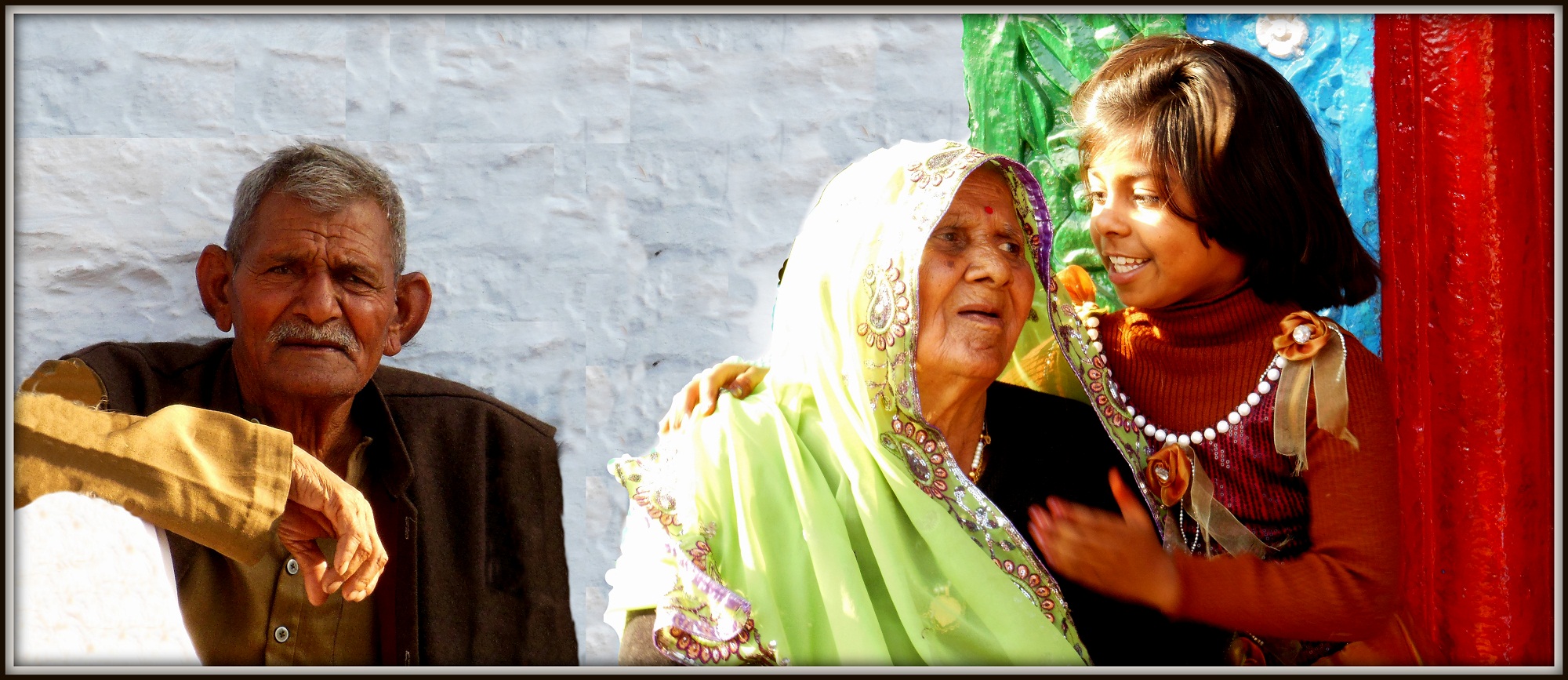"How much we learn from our grandparents"
November 4 Multiple generations living in one household brings benefit for young and old, says Mridul Uphadyay, 22, a Commonwealth Correspondent from New Delhi, India, though the custom is under pressure from western influence.
Multiple generations living in one household brings benefit for young and old, says Mridul Uphadyay, 22, a Commonwealth Correspondent from New Delhi, India, though the custom is under pressure from western influence.
Somebody died in a family; a very old woman actually.
Nobody had a proper idea of her actual age, but she had seen more than 85 seasonal changes. Even at this stage of her life she was able to finish all the household works on her own. Her left hand was strangely undeveloped by birth, even so she was able to make better round chapaties (Indian breads) than any other woman in that family.
With her death, a joint family comprising four generations scattered into families of three and two generations. Yes, I am right. In this family, four generations were living together. She was the great-grandmother in the family.
Living in joint families is common in rural India. I feel wonderful about being a member of such a joint family comprising in all 49 members.
Out of these 49 members, 21 live together in a single big house. In this family, the children spent their childhood with their uncles from mother’s side so started calling the mother ‘Jiji (Elder Sister)’, the name the uncles used to call their sister. Then the grandchildren learnt to call their grandmother ‘Jiji (Sister)’ from their uncles. And so the great-grandchildren do. Actually every member, other than her husband, calls the lady – the great grandmother in that family – ‘Jiji’.
Nobody feels the pressure of any privacy issue. Instead, festivals, celebrations and ceremonies seem better than any small fair. Sometimes watching any past celebration’s video recordings gives a feeling of the first showing or official release of a low-budget movie. Marriage celebrations are similar to a carnival. Antakshari, a spoken parlor game, shows how a music director may compose his performers. A cricket match is possible between two families. At the very least, this family has enough members to have its own cricket team with some extra players for providing drinks or being match referee.
As times change, the nuclear family trend is forcing the elderly people to spend their last years on this earth in complete loneliness, either in a home in the native land or in an old age home. As a part of fashion the eastern world is learning this from west. But for a thought, as I am not in regular touch with my father’s cousins and their families; my children will not be as emotionally attached to my cousins as I am right now. And the reason will be for not having a common great-grandparent, so breaking of the linkage.
The elder grandparents are the best storytellers of our childhood. They introduce us to our thousand-year-old culture and rituals. With the end of each generation, we lose a good fraction of our culture. If we think that being even a year older than our siblings make us intellectual enough to guide and teach them at every stage of the life, then think how much intellectual treasure the grandparent possesses to share with the grandchildren, and how much we can learn from our grandparents.
It is very shameful to leave the older people of the family in loneliness while they need our care and love the most. Too often, a housemaid is neither able to bring up a child with love nor to take care of an elderly person with love. That is why a child needs the parents and so the parents need the children. S/he was the person who brought us up with love and care after making so many sacrifices each day, even without complaining and for nothing. The old people groom the kids with the input of their experience, knowledge and emotional value of family. Loneliness and negligence should never be gifted to them.
Photo: Mridul Uphadyay
…………………………………………………………………………………………
About me:
A thinker, a social volunteer, a mechanical designer, a theater artist, a guitar player, a lyrics-writer, an amateur sketch artist, a cook, a traveler, a wannabe civil servant – there are many phrases I enjoy trying on me to describe what I see myself as.
Currently I work for the Oil and Gas Pipeline refineries as a design engineer and am studying for Management in Business Administration. I aspire to enlighten society with the knowledge and experience I gain.
………………………………………………………………………………………………………………
Opinions expressed in this article are those of the author and do not necessarily represent the views of the Commonwealth Youth Programme. Articles are published in a spirit of dialogue, respect and understanding. If you disagree, why not submit a response?
To learn more about becoming a Commonwealth Correspondent please visit: http://www.yourcommonwealth.org/submit-articles/commonwealthcorrespondents/
………………………………………………………………………………………………………………




